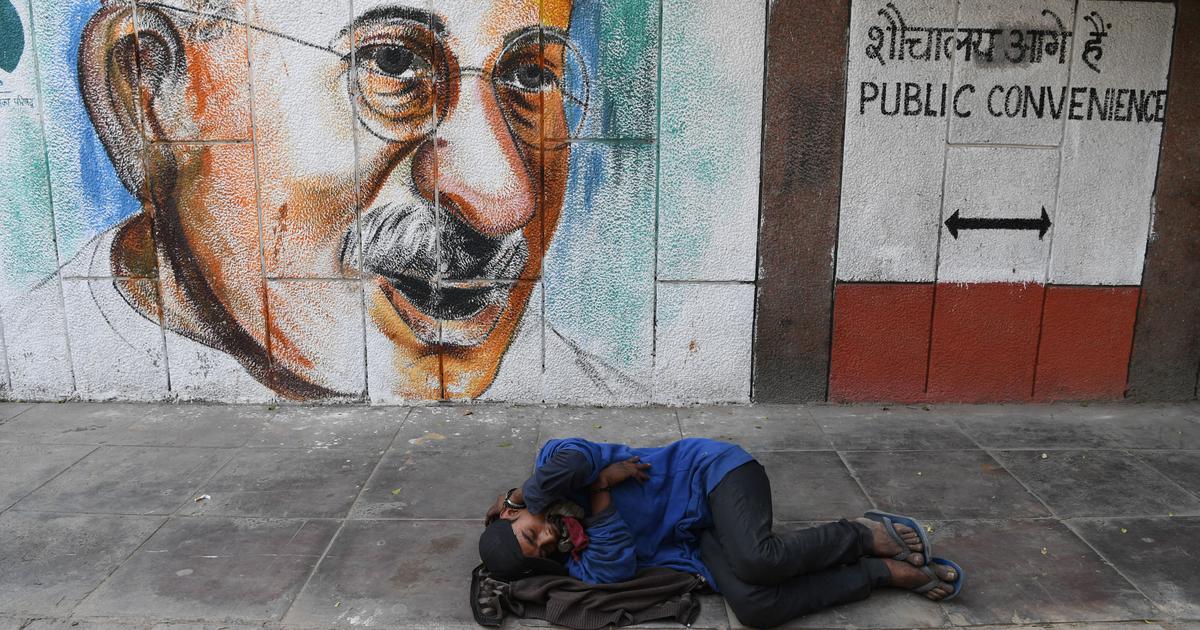
News
October 02, 2025
India’s privileged can truly honour Gandhi by taking on the duty of dismantling injustice
True swaraj begins with the rule of the self – over its own prejudices, its own comforts and its own indifference.
**India’s privileged can truly honour Gandhi by taking on the duty of dismantling injustice**
As India commemorates Mahatma Gandhi, a vital question arises: How can the nation truly honour his legacy, especially by those who benefit most from its current structures? The answer, according to many, lies not just in symbolic gestures but in a profound shift in mindset, particularly among the privileged. True homage to Gandhi demands a commitment to dismantling the very injustices that persist in Indian society.
The core of Gandhi’s philosophy, Swaraj, extends far beyond political independence. It begins with the rule of the self – a rigorous internal governance that challenges personal prejudices, comfortable complacency, and ingrained indifference. This inner transformation is a crucial first step for those who wish to contribute meaningfully to a more equitable India.
For many Indians, particularly those from marginalized communities, injustice is not an abstract concept but a daily reality. From systemic discrimination to economic disparities, the challenges are immense and deeply entrenched. While government policies and societal reforms play a crucial role, individual action, fueled by a deep sense of empathy and responsibility, is equally vital.
The privileged, often insulated from these realities, have a unique opportunity to leverage their resources and influence to create positive change. This could involve advocating for policy changes that promote equality, supporting organizations working on the ground to uplift marginalized communities, or simply challenging discriminatory attitudes and behaviors within their own circles.
However, this journey requires confronting uncomfortable truths and relinquishing the privileges that perpetuate inequality. It demands a willingness to listen to the experiences of those who are marginalized, to learn from their struggles, and to amplify their voices. It also necessitates a critical examination of one's own biases and assumptions.
Ultimately, honoring Gandhi is not about erecting statues or organizing commemorative events. It is about embodying his principles of truth, non-violence, and social justice in everyday life. It is about recognizing that true Swaraj, both for the individual and for the nation, can only be achieved when every citizen is afforded the opportunity to live a life of dignity and freedom. The privileged, by embracing this duty of dismantling injustice, can transform Gandhi’s vision into a tangible reality, ensuring a more just and equitable future for all Indians.
As India commemorates Mahatma Gandhi, a vital question arises: How can the nation truly honour his legacy, especially by those who benefit most from its current structures? The answer, according to many, lies not just in symbolic gestures but in a profound shift in mindset, particularly among the privileged. True homage to Gandhi demands a commitment to dismantling the very injustices that persist in Indian society.
The core of Gandhi’s philosophy, Swaraj, extends far beyond political independence. It begins with the rule of the self – a rigorous internal governance that challenges personal prejudices, comfortable complacency, and ingrained indifference. This inner transformation is a crucial first step for those who wish to contribute meaningfully to a more equitable India.
For many Indians, particularly those from marginalized communities, injustice is not an abstract concept but a daily reality. From systemic discrimination to economic disparities, the challenges are immense and deeply entrenched. While government policies and societal reforms play a crucial role, individual action, fueled by a deep sense of empathy and responsibility, is equally vital.
The privileged, often insulated from these realities, have a unique opportunity to leverage their resources and influence to create positive change. This could involve advocating for policy changes that promote equality, supporting organizations working on the ground to uplift marginalized communities, or simply challenging discriminatory attitudes and behaviors within their own circles.
However, this journey requires confronting uncomfortable truths and relinquishing the privileges that perpetuate inequality. It demands a willingness to listen to the experiences of those who are marginalized, to learn from their struggles, and to amplify their voices. It also necessitates a critical examination of one's own biases and assumptions.
Ultimately, honoring Gandhi is not about erecting statues or organizing commemorative events. It is about embodying his principles of truth, non-violence, and social justice in everyday life. It is about recognizing that true Swaraj, both for the individual and for the nation, can only be achieved when every citizen is afforded the opportunity to live a life of dignity and freedom. The privileged, by embracing this duty of dismantling injustice, can transform Gandhi’s vision into a tangible reality, ensuring a more just and equitable future for all Indians.
Category:
Politics